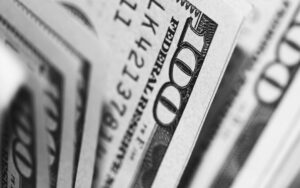Gold has always been considered a safe haven for investors in times of economic uncertainty. The precious metal has been used as a store of value for centuries and continues to play a significant role in the global forex market. In this article, we will provide an overview of the role of gold in the forex market and its impact on currency values.
Gold is often referred to as the “ultimate currency” due to its universal acceptance and value. Unlike fiat currencies, which are backed by the faith and credit of the issuing government, gold has intrinsic value and cannot be manipulated or printed at will. This makes it a reliable asset for investors looking to diversify their portfolios and protect against inflation and currency devaluation.
In the forex market, gold is traded against major currencies such as the US dollar, the euro, and the Japanese yen. The value of gold is denominated in these currencies and fluctuates based on supply and demand dynamics. When the demand for gold increases, its price rises relative to the currency it is traded against, and vice versa.
One of the primary drivers of gold’s value in the forex market is its inverse relationship with the US dollar. As the world’s reserve currency, the value of the US dollar has a significant impact on global economic conditions. When the US dollar weakens, investors often turn to gold as a hedge against currency depreciation. This increased demand for gold drives up its price relative to the US dollar.
Conversely, when the US dollar strengthens, the price of gold tends to decrease. This is because a stronger dollar makes gold more expensive for investors using other currencies. As a result, traders often closely monitor the value of the US dollar and its impact on gold prices.
Gold also serves as an indicator of market sentiment and economic stability. During times of economic uncertainty or geopolitical tensions, investors tend to flock to safe-haven assets like gold. This increased demand for gold reflects a lack of confidence in the global economy and can lead to a decrease in currency values, especially for riskier assets like emerging market currencies.
Central banks also play a crucial role in the forex market’s relationship with gold. Central banks hold significant amounts of gold as part of their foreign exchange reserves. These reserves act as a buffer against economic shocks and provide stability to the currency they issue. When central banks increase their gold reserves, it signals confidence in the precious metal and can lead to higher gold prices.
Furthermore, central banks’ actions in the forex market can directly impact gold prices. For example, if a central bank decides to raise interest rates, it can strengthen the currency and potentially decrease the demand for gold. Conversely, if a central bank implements expansionary monetary policies like quantitative easing, it can weaken the currency and increase the demand for gold.
In recent years, the role of gold in the forex market has evolved due to the emergence of exchange-traded funds (ETFs). These investment vehicles allow investors to gain exposure to gold without physically owning the metal. ETFs have made it easier for retail investors to participate in the gold market, leading to increased liquidity and trading volumes.
In conclusion, gold plays a crucial role in the global forex market as a safe-haven asset, indicator of market sentiment, and store of value. Its inverse relationship with the US dollar, influence on currency values, and central bank actions make it an essential asset for forex traders and investors. Understanding the dynamics of gold in the forex market is vital for anyone looking to navigate the complexities of the global financial system.






